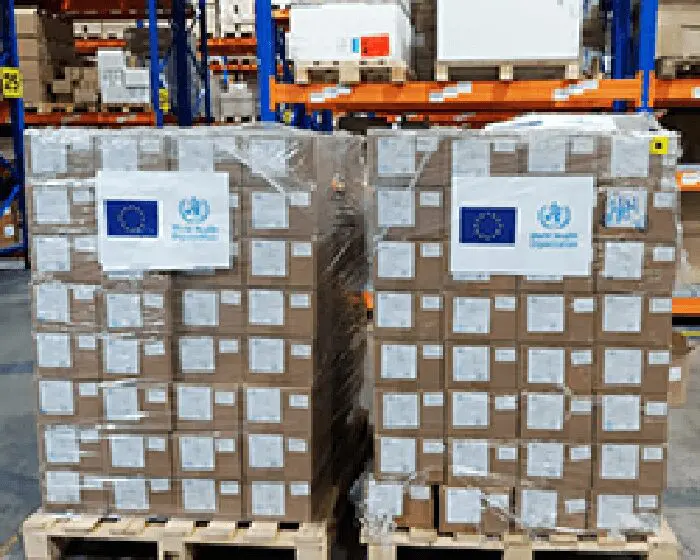WHO, with financial support from the European Union (EU), delivered over 8 tonnes of medical supplies to Kazakhstan to support the government’s response to the COVID-19 pandemic. The delivery included personal protective equipment, that is, items such as surgical masks and gowns, as well as laboratory equipment.
The cargo is part of a joint delivery plan by WHO and the EU to support national health authorities in responding to the virus. Supplies will be distributed to medical organizations in the country in line with priorities and needs.
“During this challenging time, it is extremely important to show solidarity with and support for health workers in all countries,” said WHO Representative to Kazakhstan Dr Caroline Clarinval. “The health of Kazakhstani frontline medical workers must remain our priority,” she stressed, expressing gratitude to the EU for being the largest donor during the pandemic, and for ensuring the supply of medical devices to the Republic of Kazakhstan.
Long-term sustainability
EU ambassador to Kazakhstan Sven-Olov Carlsson thanked WHO for working with the EU to deliver the medical cargo, insisting that “with mutual assistance, openness and effective international cooperation, we will not only overcome this crisis, but we will also be able to prevent these kinds of public health threats in the future.”
In July 2020, the EU launched the Central Asia COVID-19 Crisis Response (CACCR) Programme, a solidarity package with a budget of 3 million euro (1.4 billion tenge) to help Central Asian countries, with Kazakhstan being a major beneficiary of the programme.
The CACCR programme supports mitigation of the impact of the COVID-19 pandemic. The programme also seeks to ensure the long-term sustainability of the national health systems by building the capacity to respond to any similar future threats to public health.







